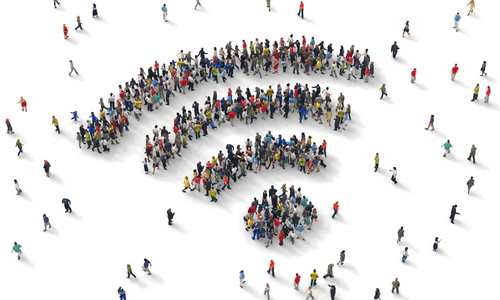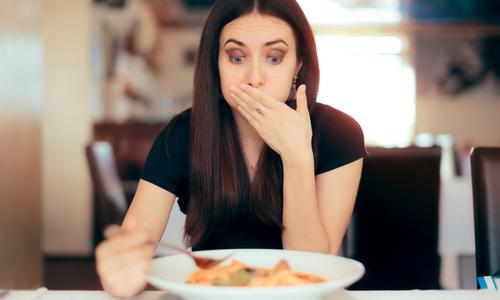Mirror Neurons - Friend or Foe?

Issue No. 23 | Brought to you by the Addiction Reset Community – ARC
Unlocking the secrets of processed food addiction and guiding you to find freedom from food and weight obsession.

In this issue, we take a closer look at why we lose control over our food... against our will and much to our dismay.
Science is increasingly focused on the role of mirror neurons in our decisions about what to eat. It seems that these powerful neurons in the brain can direct us to do what the people around us are doing... no matter what.

Have you ever had the experience of watching someone eat something and then getting an intense craving for that food? Maybe you haven't thought about that food for a long time, but suddenly you can't get it off your mind. Those thoughts could be coming from your mirror neurons. Those mirror neurons might think that eating the same thing as the other person could save your life, even if the opposite is true. So learning how to manage the thoughts that emanate from mirror neurons is super valuable.
Your mirror neurons are always watching what others are doing and urging you to do the same. They're on radar duty all the time, regardless of where, when, and what is going on.
Loss of Control
Mirror neurons are so fierce at driving us to conform because for millions of years, conforming meant surviving.
People lived in tribes. Often, each member of the tribe had to do precisely the same thing at the same moment to avoid death. If a tiger suddenly appeared, every member had to run fast — any member who decided against running met death.
Suppose an earthquake meant that everyone had to run out of a cave at the same moment. The one who decided against running could have been crushed. Now imagine that the whole tribe goes hunting for food, but some just don't want to go. You can believe that those who decided not to go didn't have anything to eat. So the non-conformers didn't survive to pass on their genes.
This means their malfunctioning mirror neurons did not get passed on. That means that all the genes that did get passed on have superlatively functioning mirror neurons. That's why our mirror neurons are so powerful and why we have to consider them when deciding who we're going to hang around with.
We're going to be strongly led to do what those people are doing so we better choose carefully... especially when it comes to the food they eat.

Taking Back Control
How can you keep your mirror neurons happy? Well, conforming is the key to maintaining mirror neurons from becoming anxious about whether you're going to survive or not. And, your mirror neurons indiscriminately want you to conform to whoever is around. Mirror neurons are not the part of the brain that decides whether the behavior is healthy or not. That decision takes place in the frontal lobe. Mirror neurons simply mimic whatever behaviour they are exposed to, good or bad.
Unfortunately, processed foods make the frontal lobe crash, so that may no longer be a reliable source of good decisions about food either. However, the frontal lobe is still where we make decisions about who we're going to hang around with.
To take back control of control of our food choices, we can expose our mirror neurons to a group of people who are already making good food choices. Spend time with people who understand your struggle with controlling your food – people who are kind and empathetic of your desire to eat healthily and who are eating healthy food themselves.

Exposing mirror neurons to the right group of people can gently support you to conform to making healthier food choices that lead a life free from food obsession.
The science of mirror neuron engagement and activating conformance drive for recovery from processed food addiction is an integral part of the support provided by the Addiction Reset Community – ARC. Join us today and let us walk beside you as you get your mirror neurons to work for you, and not against you.

Within the Addiction Reset Community (ARC) our members and their journeys are important to us. We find their stories inspiring and hopeful for everybody in health recovery.
“I came to the ARC a few months ago and my only expectation was to get some help with my food because I needed the support to stick with my healthy meal plan. I’m thrilled to say that being in this kind of community and learning the science of what was causing me to lapse, has helped me get back control. What I wasn’t expecting, was the added bonus of learning about self-care, boundaries, detachment, relationship management and everything else that was taking me back to processed food before. I had no idea that this was all part of recovery. My entire life is improving and I love it!”

Many people reach out to Joan asking for advice and assistance on how they can begin their recovery journey.
Dear Joan:
I am able to eat a clean breakfast and lunch but I really struggle with cravings at night. I tend to overeat at dinner time and if there Is processed food in the house, I will eat that too. This is something that doesn’t happen during the day. In fact, I can even miss breakfast or lunch and not think about the food at all. Why are the evenings so hard?
Joan responds:
Firstly I think it’s a big win that you do get to eat clean during the day. ‘Time of day’ can be a trigger for food addiction relapse. Night eating, in particular, is a common challenge. It can be the result of letting stress and cravings build up throughout the day. Prolonged hunger or under-eating during the daytime may also contribute to over-eating at night. For some people, the trigger is just being home in the evening where cravings are stimulated by television and food availability. The key to overcoming night eating is to manage the triggers and cue load during the day.
DISCLAIMER:
Dr Joan Ifland (PhD) is a global expert on the subject of processed food addiction and is not a medical doctor. Information and response shared in this Newsletter are not intended for, and should not be construed as medical advice.

Do you have a question? Reach out to us with your questions about food addiction and recovery at gethelp@foodaddictionreset.com
Are you showing signs of Processed Food Addiction? Take this self-quiz to find out now!
Recent copies of Dr Joan Ifland's Blog:
Issue 01 | Issue 02 | Issue 03 | Issue 04 | Issue 05 | Issue 06 | Issue 07 | Issue 08 | Issue 09 | Issue 10 | Issue 11 | Issue 12 | Issue 13 | Issue 14 | Issue 15 | Issue 16 | Issue 17 | Issue 18 | Issue 19 | Issue 20 | Issue 21 | Issue 22

